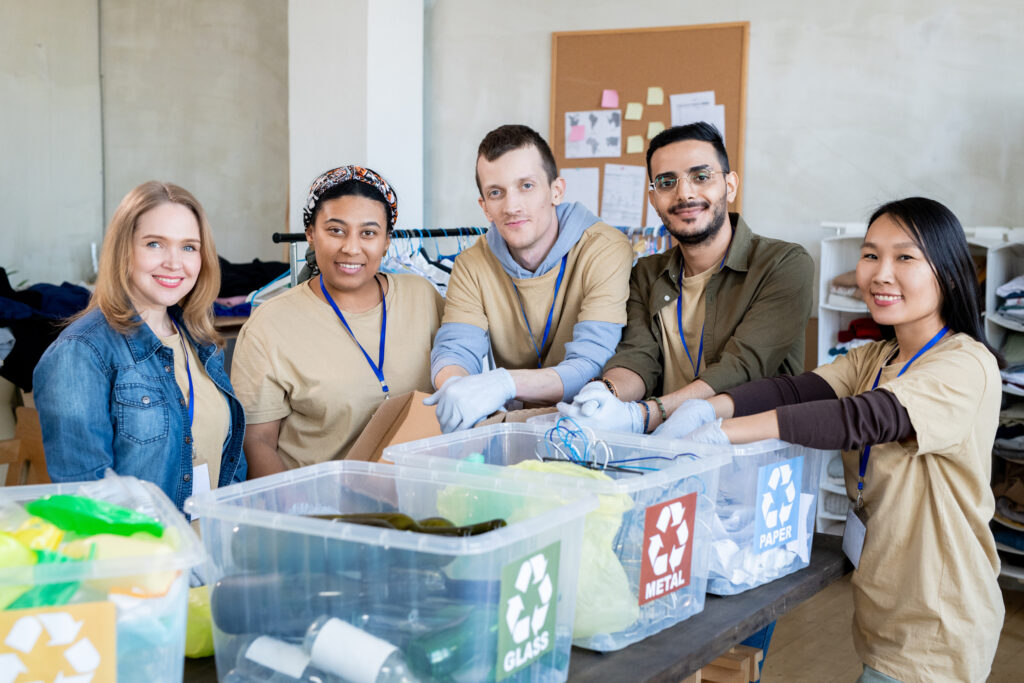This week we celebrate Zero Waste Week, a campaign that encourages us to adopt practices to reduce, reuse, and recycle and it even includes composting and making thoughtful choices in what you consume.
This eco-friendly approach tackles a multitude of crucial issues, spanning environmental, economic, and social concerns. By cutting down on the extraction, production, and transportation of raw materials, zero waste practices help conserve our precious natural resources, ultimately protecting our ecosystems.
The large decrease in waste delivered to landfills and incinerators is one of the benefits of zero waste that becomes apparent right away. Less environmental impact results from this, including decreased greenhouse gas emissions, less contaminated land and water, and the preservation of important habitats. But it’s not just about waste reduction; it’s also about fostering a culture of mindful consumerism and sustainable living.
Zero waste initiatives often require teamwork and community involvement, strengthening local communities, nurturing a sense of responsibility, and encouraging collective efforts to tackle environmental challenges. So, let’s embark on this journey together.

Here are 10 things you can practice from this Zero-waste week:
1. Choose highlighters, pens, and pencils that are refillable. To cut down on paper use, whenever possible, use digital notes and assignments.
2. Reuse your bags each time you go shopping to cut down on the use of plastic.
3. Plan your meals carefully to reduce food waste. Avoid buying too much food and come up with creative ways to use leftovers.
4. Participate in or lend support to campus sustainability clubs and projects. These organisations frequently plan occasions and endeavors to advance waste minimization and environmental awareness.
5. Learn more about the recycling regulations in your area so you can sort your waste properly to recycle correctly and prevent contamination. Westminster Council collects waste from International Students House for sorting and recycling. Read more about the sustainability policy of the House and find out where your trash goes.

6. Invest in slow fashion and sustainable clothing to reduce resource waste, energy emissions, and the usage of hazardous chemicals.
7. Select vintage/thrifted or used products for your furnishings, technology, and clothing. As a result, less new packaging and manufacture is required.
8. Use public transport, bicycle, or walk as most people in London do. This lowers carbon emissions while saving money.
9. To conserve water, ensure that leaks are quickly repaired, take shorter showers and be mindful of wasting tap water when doing your dishes or brushing your teeth. At the International Students House, residents are advised to report any water leaks to the maintenance department as quickly as possible.
10. You can increase the lifespan of your possessions by repairing them rather than throwing them away as soon as they become damaged. This is valid for apparel, electronics, and furniture.

It’s clear that there are numerous reasons to embrace this eco-friendly lifestyle. Not only does it reduce our impact on the environment, but it also has far-reaching benefits for our economy and society. It’s a holistic approach that invites us to rethink our consumption habits and make choices that lead to a brighter, more sustainable future.
To make it even more practical, we’ve shared ten actionable tips that you can incorporate into your daily life. By taking small steps like these, we can collectively make a big difference.
Remember, zero waste is not just a solo journey; it’s an opportunity to join forces with your community and strengthen bonds while addressing pressing environmental challenges. So, let’s embark on this journey together and create a world that’s cleaner, greener, and more sustainable for generations to come!
Have you also read these articles?
